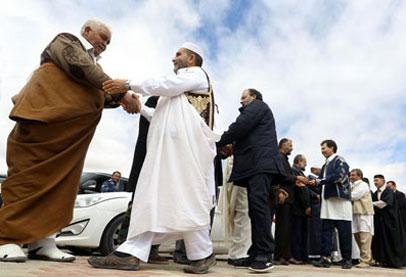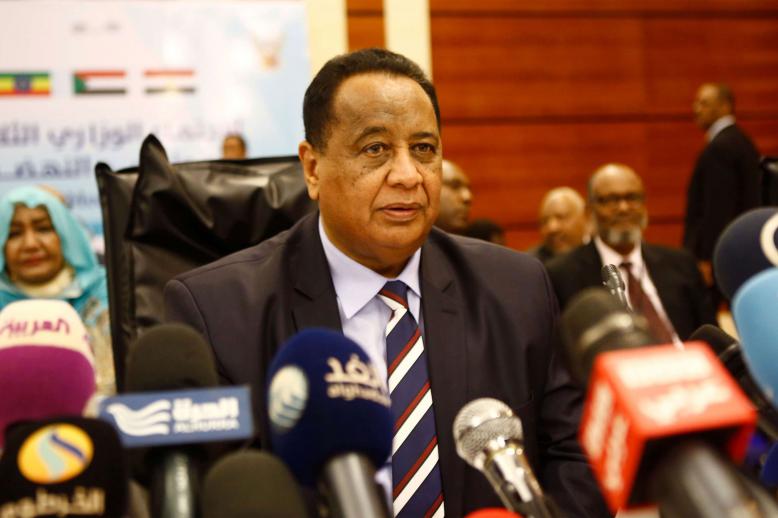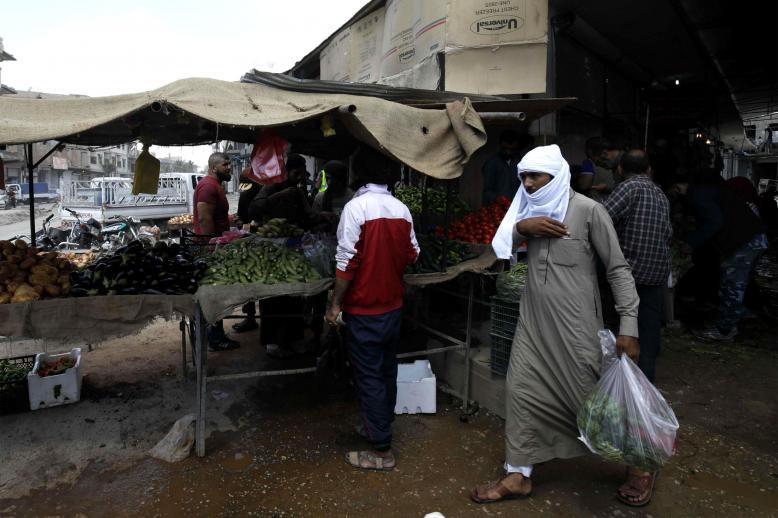Libyan armed factions hail 'historic' reconciliation talks

ZINTAN, Libya - Leaders of the two most heavily armed towns in western Libya met Wednesday for the first time since they fought for control of Tripoli four years ago, hailing the reconciliation talks "historic".
The towns of Misrata and Zintan were among the first to rise up against the regime of dictator Moamer Gathafi who was killed in 2011.
The rebels had taken control of the capital in the summer of 2011 two months before Gathafi was caught in his hometown of Sirte.
They shared strategic sites in Tripoli until 2014 when a coalition led by Misrata forced out the Zintanis after weeks of bloodshed.
Leaders of the armed groups and dignitaries from Misrata travelled to Zintan, 170 kilometres (105 miles)southeast of Tripoli, for a meeting that a final statement declared "historic".
"This meeting is a first step which will be followed by others," said Zintan mayor Mustafa al-Barouni at the start of the discussions.
"There will no longer be recourse to arms to settle our differences," he vowed.
Ahead of the next meeting due to take place in Misrata, 200 kms east of Tripoli, the two sides agreed to set up a committee to look into the main issues, such as the fate of prisoners and those who have disappeared.
Mohamad Rajab, head of Misrata's military council, said Wednesday's first session would facilitate "reconciliation with other regions and tribes".
Their statement said both sides stressed the need to bring the army and police under a civilian authority and to fight terrorism.
Libya has been gripped by chaos since a NATO-backed uprising toppled Gathafi, with rival administrations and multiple militias vying for control of the oil-rich country.
Today a national unity government in Tripoli, which has international recognition, faces a rival authority supported by Khalifa Hafter in the east.
Khalifa is accused by Misrata of seeking to set up a new military dictatorship in Libya.
Jihadists and people-traffickers have taken advantage of the chaos to gain a foothold in the North African country.




